Members of the Equinox team recently participated in a workshop for the Great Smoky Mountains Institute at Tremont (Tremont) and the design of their second campus in Townsend, TN. This nature-based education organization is establishing a new campus that will also host outdoor educational programming for both day and overnight users of all ages. This new campus seeks to achieve Living Building Challenge Certification, a set of guidelines that incorporate regenerative approaches to the design and eventual functioning of the campus from building operation to utilities to the site itself – and that’s where we come in.
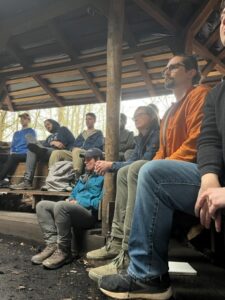
Equinox is involved in several facets of the landscape, from habitat creation to stormwater design; however, one focus we are particularly excited about is the agricultural component. We are planning an array of agricultural areas that will be developed and function not only to feed the participants on the campus but also to educate them on the practices used. To delve into this design, Tremont and Equinox are employing the help of students in the University of Tennessee School of Landscape Architecture to ideate and propose design solutions that are regenerative, supportive of the local ecology, and meet the mission of Tremont and the guidelines of the Living Building Challenge (LBC).
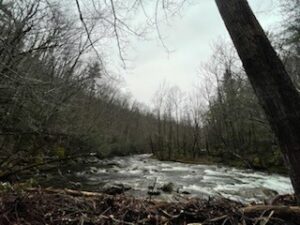
If you have never been to Tremont, it is an oasis of nature and mindfulness. Upon arriving on campus, you can feel your stresses washed away by the mountain air and the sounds of the Middle Prong Little River as they ground you. Through all your activities, the staff invite you to consider nature and the people there with you – to notice and connect with both and to fully engage with them. And with little to no wifi or cell signal, these connections to the natural world around us are that much easier. This communion with nature, this understanding of the land and all that occurs with and within it, is important to fully understanding Tremont’s mission and thus creating a new campus that embodies that same essence. Furthermore, it is the foundation of the LBC – to create communities where the built environment and ecology work together for a regenerative system now and in the future.
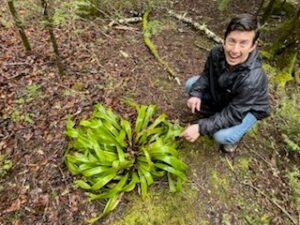
During a two-day workshop, several players contributed knowledge and information for the students to orient themselves with the project. Tremont shared their values and their vision and goals for the campus. They engaged the students in programming to provide a first-hand account of what participants experience in Tremont’s programming. Equinox Landscape Architects Jason Seickel and Sarah Newton shared the progress of the overall campus design to date in collaboration with Cameron Bolin from McCarty Holsaple McCarty, the Knoxville, TN-based architects on the project. Equinox Senior Ecologist Owen Carson targeted the LBC “Imperative,” or key principle, titled “Ecology of Place,” which seeks to consider natural conditions and develop in conjunction with nature rather than on it or adjacent to it. He presented his process and findings from initial ecological analysis and how that relates to this imperative. Joyce Brown, Operations Manager at Equinox, brought her permaculture expertise to introduce the concept of “layered” and regenerative agriculture practices that will be crucial to establishing a balanced agricultural system integrated into the overall regenerative campus. This directly relates to the Agriculture Imperative of the LBC, which seeks to connect communities to fresh and local food.
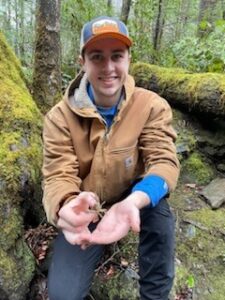
After collecting these experiences and information at Tremont’s current campus, Jason and Sarah charged the students with designing an agricultural system for the second campus that incorporates these concepts of connection with nature and regeneration. They explored the site with the lens of Tremont’s mission and values, with an introduction to the project and LBC, and with the prompt of agricultural design. Over the next few weeks, they will research agriculture within the context of Tremont and LBC and will add focus areas such as carbon sequestration and stormwater integration that can offer ways to further integrate the agricultural components into the campus. Equinox and Tremont will then reconvene with the students to develop these ideas into designs, with the aim of incorporating ideas for a unique and regenerative campus.
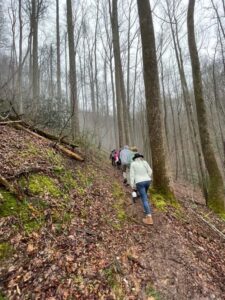
At Equinox, we feel grateful for this opportunity to engage in a project that meets our mission to the fullest – building community through this process and for the future of the campus, protecting and restoring natural resources of the place through thoughtful design, planning for a campus that is ecologically sustainable, and designing a landscape that is resilient and regenerative.
